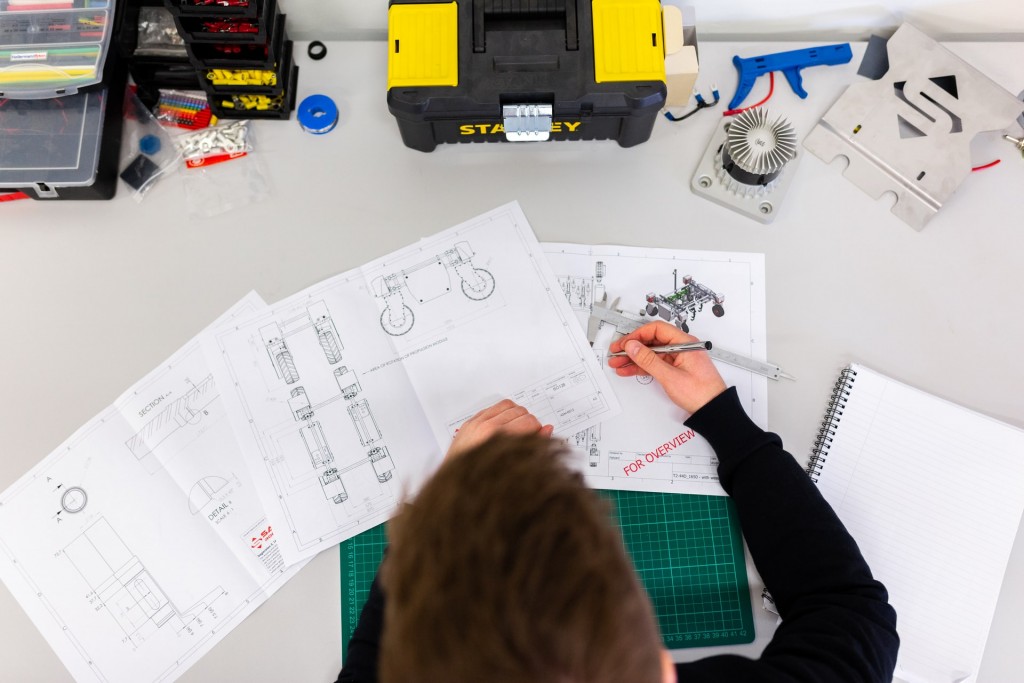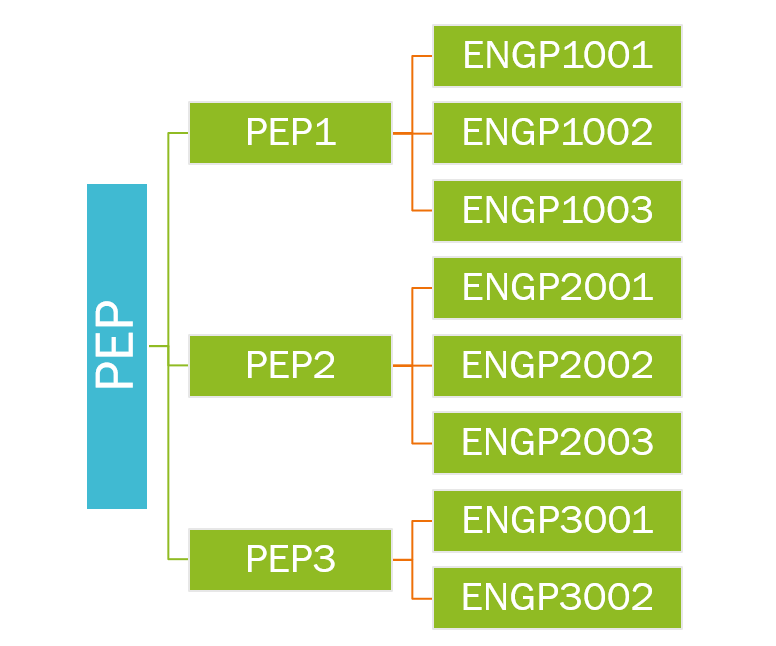Are you a high school graduate looking to become a prospective Engineering or IT student at the University of Sydney? Don’t know about or are confused about the compulsory Professional Engagement Program (PEP)?
Well this article will give you all you need to know about PEP and answer all the questions you might have.
Let’s dive in!
Q1. What is the Professional Engagement Program?
Q2. What are the requirements?
Q3. What kind of activities can you do for each category?
Q4. How do you log your hours?
Q5. What if you can’t get all your hours in time?
Q6. How should you manage your time so you don’t get left behind in PEP?
Q7. Do these units have any classes?
Q8. So what is the point of doing the PEP?
PEP from a Student’s Perspective
Q1. What is the Professional Engagement Program?
PEP is a work experience program integrated into all undergraduate Engineering and IT degrees at USyd. Introduced in 2018, the program replaces the traditional 12-weeks of professional practice that students undertake between their third and fourth years!
The PEP is designed to engage students in professional and social contexts such that students will have the opportunity to apply engineering knowledge in real-world scenarios.
At the end of the program, students should be able to better understand and prepare for future work experience and graduate roles.
Check out some of the degrees that incorporate the PEP:
Do you need to know anything beforehand?
The PEP is a relatively straightforward program and students are guided through each stage by courses they can enrol in each semester.
It’s important to note however, that all commencing students must begin the program from the introductory unit and continue chronologically until the program is complete (i.e. you must follow the order of completion of PEP units and cannot skip ahead).
Q2. What are the requirements?
In general, the PEP requires participating students to complete a minimum of 600 (cumulative) hours of engineering-focused, non-engineering-focused and engineering work activities. This overarching requirement is divided across the entirety of the degree.
| Activity Type | Minimum Hours |
|---|---|
| Engineering-focused | 200 |
| Non-engineering-focused | 70 |
| Engineering Work | 200 |
The remaining 130 hours is made up of your choice of activity. It could be an additional 130 hours of one of the above activity types or cumulative 130 hours from 2 or 3 of the activity types.
Those are the overarching requirements for the PEP — now let’s get down to the nitty gritty of the program. PEP is divided into 3 main stages, simply called PEP1, PEP2 and PEP3.
Each PEP stage (PEP1, PEP2, PEP3) is subdivided into smaller units of 1 semester duration:
-
- PEP1 is divided into ENGP1001, ENGP1002 and ENGP1003
- PEP2 is divided into ENGP2001, ENGP2002 and ENGP2003
- PEP3 is divided into ENGP3001 and ENGP3002
Each PEP stage has its own minimum activity hour requirements in order for you to move onto the next stage.
| Stage | Non-engineering- focused hours (minimum) | Engineering-focused hours (minimum) | Engineering work hours (minimum) | Any (hours can be from any of the categories) |
|---|---|---|---|---|
| PEP1 | 20 | 30 | - | 30 |
| PEP2 | 30 | 90 | - | 20 |
| PEP3 | 20 | Balance of 200* | 200 | 80 |
Total = 600 hours
* Cumulative total = 200 hours (i.e. 80 Engineering-focused hours needed for PEP3)
The minimum required hours are the base requirements a student needs to pass each stage of PEP. There is however a recommended hours milestone of 700 hours which students should aim for.
Note: You don’t need 700 to pass the program, just 600 but it is recommended!
| Stage | Non-engineering- focused hours (minimum) | Engineering-focused hours (minimum) | Engineering work hours (minimum) | Any (hours can be from any of the categories) |
|---|---|---|---|---|
| PEP1 | 30 | 90 | - | - |
| PEP2 | 30 | 90 | - | - |
| PEP3 | 20 | 20 | 420 | - |
Total = 700 hours
Q3. What kind of activities can you do for each category?
Non-engineering focused activities:
-
- Paid or unpaid employment
- Developing employment skills or other transferable skills
- Mentoring
- Community service
Note: Non-engineering focused activities must be extra-curricular
Engineering focused activities:
-
- Engineering research
- Engineering site visits
- In-curricular engineering projects
- Engineering design challenges
Engineering work:
-
- Paid or unpaid employment in an engineering role (with supervision of a qualified engineer)
Engineering work and non-engineering focused activities are self-sourced and extracurricular. In your enrolled units, you may be given suggestions on activities to participate in but ultimately, the majority of your hours in these categories should be attained independently.
Engineering focused activities can be both in-curricular or extracurricular and thus some activities can be sourced directly from units within your degree.
Q4. How do you log your hours?
PEP hours are logged through online claims! Claims need to be submitted with evidence and reflections on the benefits of the activity on your professional development.
These claims will then be peer and staff reviewed before being accepted or rejected.
Q5. What if you can’t get all your hours in time?
There is some leeway to complete the PEP outside of the recommended time frame. However, this may cause a delay in your graduation.
| PEP Stage | Minimum (semesters) | Maximum (semesters) |
|---|---|---|
| PEP 1 | 3 | 4 |
| PEP 2 | 3 | 4 |
| PEP 3 | 2 | 3 |
Q6. How should you manage your time so you don’t get left behind in PEP?
The most important thing to keep in mind in order to keep up with the program is plan ahead! Identify the unit you are enrolling in, for the next semester and do a bit of research on:
-
- The minimum requirements needed to pass the unit
- How you will divide up your hours across the 13 week semester
- What activities you will participate in for your PEP claims
It is also a good idea to do some research on your other units and see if any major projects or assignments from those units can be claimed for PEP.
Q7. Do these units have any classes?
The PEP does not have regular, centrally timetabled classes like your other units. Each unit of PEP will require one to two 2-hour workshops where:
-
- Your progress will be checked
- You will have the opportunity to ask questions
- You will have class time to plan out future activities
- The next stage of the program will be introduced to you (introduction workshops)
That’s it! No lectures, no practicals. Just 2-3 workshops per semester and undertaking independent activities for your claims.
Q8. So what is the point of doing the PEP?
The PEP is designed to guide students on the transition between engineering students and practicing engineers. It provides a structured course that students can follow to develop the necessary skills they need to succeed in a graduate role!
Whilst other units of your degree will provide you with the theoretical and technical knowledge required to be an engineer, the Professional Engagement Program will give you the means to contextualise those skills. Professional development activities will help you recognise how and where to apply your knowledge and teach you the soft skills you’ll need to work effectively in graduate roles.
PEP from a Student’s Perspective
The Cons
The program is not without some drawbacks though. The additional 600 hours of time students need to devote to extra activities adds significant pressure to already difficult degrees.
On top of this, a cascading claim review system often generates backlogs of several hundred claims, adding to the inefficiency of the program. This problem however is understandable, being a new program and solutions are being implemented to alleviate the issue.
Personally, I also find the need for a self-reflection per claim is excessive. It somewhat begets the idea that students are unable to extract any worth or value from their experiences without composing a rigid, structured essay. It is both a tedious and repetitive experience which seems to motivate students to “wing it” for the sake of getting their hours in.
The Pros
Despite the comments I make above, the program’s guidance on the development of soft skills in a workplace context cannot be matched in efficacy or consistency by any other unit.
From my own experiences, having worked through 2 years of the Professional Engagement Program, there are merits of the program that far outweigh that seemingly gargantuan workload.
The greatest value students can take away from this program is the ability to constantly be applying things you have learnt in your degree in actual engineering contexts! Unlike the prior 12 week work experience program, PEP pushes students to actively seek out methods and activities for self-improvement.
Like all academic and professional programs, this one has its own points of merit and demerit! I believe PEP is a step up from the previous industry engagement programs and will be a worthwhile experience for students.
Top Tips from Me
- Find a part time or casual job: This is a great way to get your non-engineering focused hours completed quickly
- Follow the guidelines for your reflections: This is the easiest way to make sure your claim is accepted
- Claim hours for in-curricular activities: Double check any units you’ve completed for any activities or assignments that are eligible for engineering focused hours
Alex Gao is an Art of Smart mentor and blogger who is passionate about teaching students the skills and know-how of high school. Alex has a great interest in the field of Biology, avidly blogging about the topic whilst also aspiring to become a Biomedical Engineer. Alex graduated in 2018 and was listed on the Distinguished Achievers list for Advanced English, Extension 1 English and Biology.




